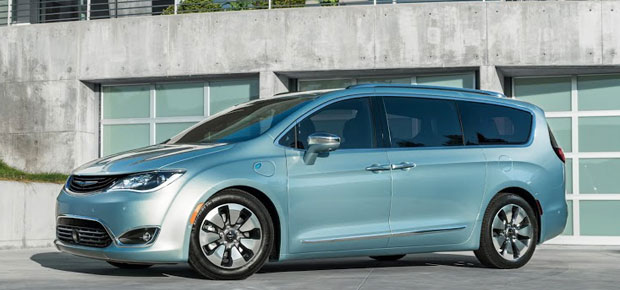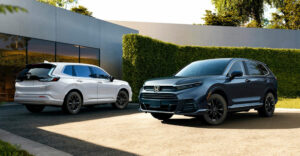Google’s Self-Driving Car Project and Fiat Chrysler last week announced that they would integrate autonomous vehicle technology into 2017 Chrysler Pacifica Hybrid minivans as part of Google’s testing program.
It is the first time Google has worked directly with a car manufacturer to integrate its self-driving technology into a passenger vehicle.
It will add 100 Chrysler Pacifica Hybrid vehicles, designed and engineered by Fiat Chrysler, to its existing self-driving test program — more than doubling the number of cars participating in the program. Google will integrate the sensors and computers the vehicles use to navigate roads without a driver.
Both companies will place a portion of their engineering teams in a facility in southeastern Michigan to speed up the development of self-driving cars.
Safer Roads
“The opportunity to work closely with FCA engineers will accelerate our efforts to develop a fully self-driving car that will make our roads safer and bring everyday destinations within reach for those who cannot drive,” said John Krafcik, CEO of Google’s Self-Driving Car Project.
Self-driving technology has the potential to prevent 33,000 auto-related deaths per year, 94 percent of them due to human error, the companies said.
Google is testing self-driving cars in four U.S. cities: Mountain View, Calif.; Austin, Texas; Kirkland, Wash.; and Phoenix. Google’s self-driving team will test the self-driving minivans on its private test track in California, prior to being deployed on public roads, the company said.
Google won’t sell the vehicles being tested with the autonomous technology. However, the team is studying how community members perceive and interact with the autonomous vehicles, and based on that the vehicle performance will be smoothed out to make them feel more natural to people inside and outside of the vehicles, Google’s Self-Driving Car Project said in a statement provided to TechNewsWorld by spokesperson Lauren Barriere.
Google Steps Ahead
The announcement means Google has taken a huge leap forward ahead of the competition in the development of self-driving cars, according to Colin Bird, senior analyst at IHS.
“Google is on the vanguard of deploying self-driving, driverless car software,” he told TechNewsWorld. “The main issue they were facing was who was going to license it for the vehicles, as Google has shown no indication of wanting to make a vehicle themselves.”
The collaboration suggests that Fiat Chrysler would be interested in deploying Google’s L5 technology — driverless and requiring no human intervention — when the system is commercialized, Bird suggested.
Until now, Google has been using modified Lexus and Toyota SUVs and hybrids as well as 100 pod cars developed by its own engineers.
The Chrysler Pacifica minivan could become part of an autonomous on-demand network of vehicles through a Car as a Service, Bird said. The minivan is “space optimized, features plenty of seats, and previous FCA minivan models have been modified to be wheelchair accessible.”
Other Chrysler minivan models have been integral components in car-for-hire fleets, he noted.
Industry-Wide Race
The Google announcement marks the latest advance in the rush to develop autonomous vehicles.
Late last month, Googleannounced an alliance with Ford, Uber, Lyft and Volvo called the Self-Driving Coalition for Safer Streets, designed to promote the safety of autonomous vehicles. David Strickland, formerly of the U.S. National Highway Traffic Safety Administration, was named the national spokesperson for the coalition.
Apple last month reportedly hiredChris Porritt, former vice president of vehicle engineering at Tesla, to head up its Project Titan top-secret car program in Germany.






















































